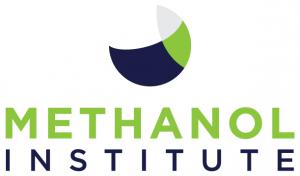Methanol Institute Position on Energy Taxation Directive Revision
Industry group supports Commission proposal for fuel excise taxation on an energy basis
“By moving from volumetric excise taxation to an energy content basis, the Commission’s proposal effectively provides pricing signals to encourage investment in energy-efficiency and reduced carbon intensity,” notes Matthías Ólafsson, Methanol Institute’s Manager of Government and Public Affairs in Europe and author of the paper. “Moreover, it attains these results in a technology neutral manner, allowing the market to decide which form of alternative energy carriers to use.”
The paper includes recommendations to ensure that the reform effectively aligns taxation policy with the climate ambition of the European Green Deal. The trade association encourages policymakers to extend the same minimum tax rate for alternative fuels in maritime transport to fuels in the road vehicle segment. Member States are also discouraged from applying higher rates than the minimums proposed in the directive. Furthermore, the Methanol Institute appeals to policymakers to employ mechanisms to determine fuel taxation on basis of its full environmental profile. “The fuel taxation categories should be based on carbon intensity as determined by lifecycle assessment produced by verified bodies instead of loosely assigning values based on feedstock and combustion process,” according to Ólafsson.
Under EU legislative procedure, taxation is a national competence, and any amending system will require unanimity among the 27 Member States. One of the key hurdles is the foreseen cost increase of traditional fossil fuels, which may negatively impact consumers. In the position paper, the Methanol Institute encourages policymakers to employ tax revenues towards carrying the cost of the energy transition. “Member States should be empowered to employ energy taxation revenue towards reducing the cost of using renewable and low-carbon fuels to consumers while spurring development and investment in innovative technologies aimed at further reducing emissions from transport.” The full position paper can be accessed HERE.
About MI
The Methanol Institute (MI) serves as the global trade association for the methanol industry.
Matthías Ólafsson
Methanol Institute
+354 848 7650
email us here
Legal Disclaimer:
EIN Presswire provides this news content "as is" without warranty of any kind. We do not accept any responsibility or liability for the accuracy, content, images, videos, licenses, completeness, legality, or reliability of the information contained in this article. If you have any complaints or copyright issues related to this article, kindly contact the author above.

